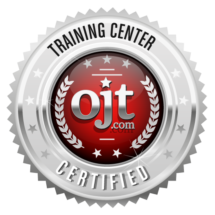
INDUSTRY-LEADING LIVE
INSTRUCTOR-LED TRAINING
World Class Training Content, Delivered On-Demand
BRIDGING THE GAP
between career seekers
& employers
from COAST-TO-COAST

World Class Training Content, Delivered On-Demand
between career seekers
& employers
from COAST-TO-COAST
Material Handlers / Laborers
QUALIFICATIONS
A high school diploma combined with Material Handling – On the Job Training (OJT) programs, Apprenticeships, Material Handling/ Laborer Workforce Job Training or Experience; they can further upskill themselves or become a jack of all trades by learning unique skills and crafts like freight forwarding, plant & machine operators, carpenters, welders, electricians, other tradespersons, and journeypersons, etc.
AVERAGE HOURLY PAY
(Credits: www.payscale.com)
| Entry-level (0-12 months) | $ 13.73 |
| Early career (1-4 years) | $ 14.26 |
| Mid-career (5-9 years) | $ 15.45 |
| Experienced (10+ years) | $ 16.43 |
PROJECTED GROWTH
(Credits: www.bls.gov)
Material Handlers / Laborers is a sustainable career, in which employment is expected to grow at an average of 3 percent from 2019 to 2029.
SKILLS/ TRAITS NEEDED
Besides good hand-eye coordination, physical strength, endurance, and dexterity, Material handlers/ Laborers must be self-motivated, follow safe work practices with extreme focus, and attention to detail, ensuring timely work completion of their tasks in hand. They also must be professional, collaborative, ethical, proactive, agile, and alert with a high degree of patience, perseverance, and be self-organized, have great grip, vision, memory, willingness to learn and adapt, listening communication, and interpersonal skills. They must be physically strong since their work is extremely physically demanding; and may involve standing for prolonged periods, working in all types of weather, climbing ladders, and lifting heavy objects, etc. If they are not well built to withstand these heavy-duty activities, they may become prone to injuries and accidents.
WORK FUNCTIONS
Materials Handlers/ Laborers work mostly in warehouses, shipping docks, freight, and forward industry, manufacturing facilities, and similar projects; performing physical tasks such as sorting, stacking, loading and unloading materials, cargo or equipment, cleaning, removing debris, tagging, labeling and packaging, assembling and disassembling, delivery and other miscellaneous work; reading and following plans, processes and blueprints, and assisting skilled trades and journeypersons with work; in tool use, lifting, carrying and managing materials, equipment, and machinery for them and providing support in their duties, following safety protocols and standards to avoid accidents and injuries. They may be needed to work in shifts.
Related Careers